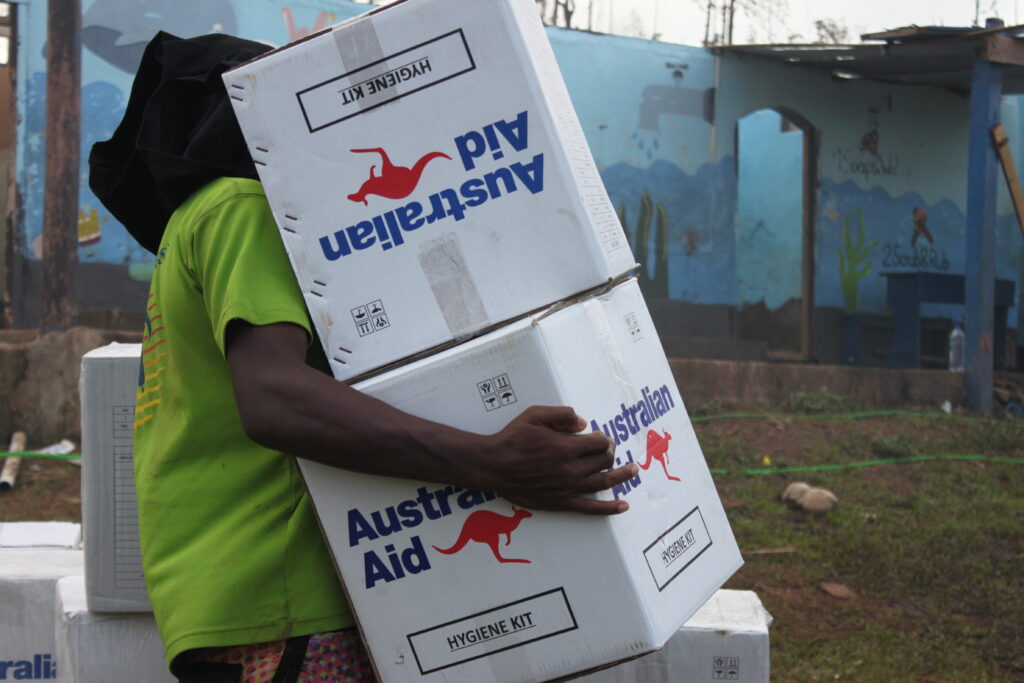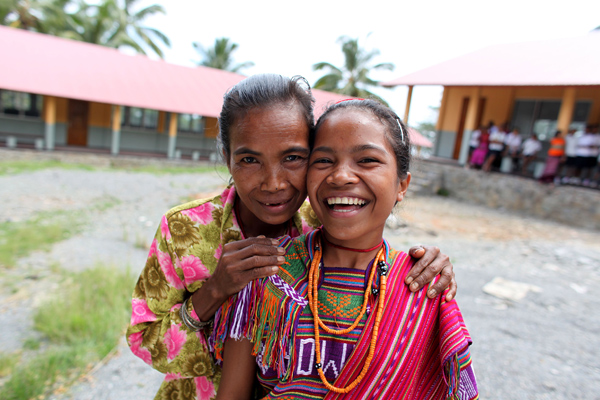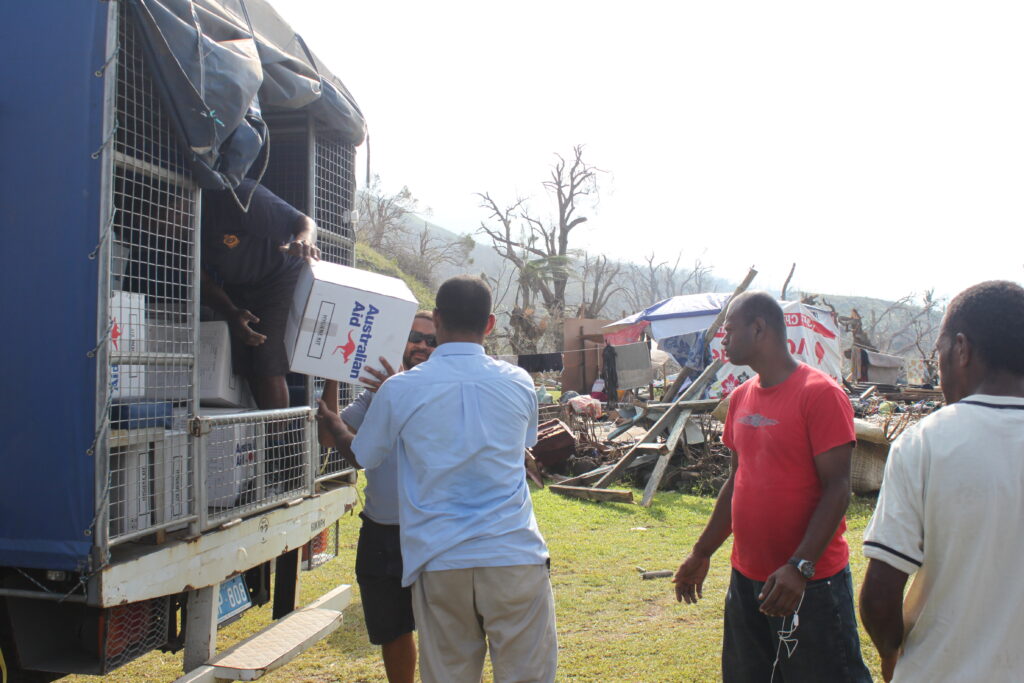This is the second part in a series of blogs based on Micah Australia’s Submission to the International Development Policy Review.
How has the Government framed the focus and goals of the Aid budget?
The government has four focuses for Australia’s international development policy.
These were laid out in the 2017 Foreign Policy White Paper – the most comprehensive foreign policy strategy document in more than a decade.
The government identified; security, stability, prosperity and resilience as fundamental to Australia’s foreign policy.
It is no surprise that with the backdrop of when this paper was released and the world we continue to find ourselves in, that the focus of Australian Aid has shifted to a paradigm where aid is seen through its geo-political and security lens first and foremost.
But Micah hold that this should be not be the main focus of Australian Aid.

What then should be the focus?
Consistent with Micah’s view about the purpose of Australia’s development cooperation, Australia’s investments in aid should not be primarily for the purpose of Australia’s security.
Other portfolios within the government invest significantly greater resources than the modest aid program in securing Australia interests both at home and abroad.
In fact, the percentage of Federal Budget spending in 2019-2020 on Defence was 7.67% of the federal budget and Aid was only 0.82%!
On this limited budget, aid cannot be and should not be for the purpose of security.
Micah has identified and prioritised three goals for Australian Aid:
- Social stability
- Inclusive prosperity
- Community resilience
These three goals are vital to Australia’s development cooperation and below is Micah’s views on how these should be considered.
Goal 1: Social Stability
Micah agrees that a stable region and world is important to tackling poverty and promoting sustainable development. Fragile and conflict affected states also experience poorer outcomes in human development and can often see a reversal of development gains.
While the focus of much of the discussion on the stability of the Asia-Pacific has usually focused on the changes in the geo-political dynamics of the region, Micah has identified other drivers which could contribute to greater stability in the region, nations, communities and households.
What is undermining Social stability in our region?
There are many factors undermining social stability in our region.
In particular tackling violence, especially violence against women and children, and the scourge of modern slavery is fundamental to reducing conflict and creating a more peaceful region.
Violence against women and children:

More than 60 per cent of women in some Pacific Island countries have experienced violence with one in four adolescent girls experiencing physical violence, and one in ten sexual violence.
Women and girls with disabilities are two to three times more likely to experience physical or sexual violence.
These statistics show, that despite the critical role they play in society, women and children in our region continue to face significant challenges.
Micah commends the Australian Government on its Pacific Women Shaping Pacific Development Program. Current funding for the Pacific Women program is set to expire in 2021-2022. This commitment should be renewed as a priority for the Government, along with other new innovative forms of funding targeting this issue specifically.
Children must be protected and educated and women must be socially and economically empowered and given a voice in decision making in the family home, the local community and the nation.
This is one of the most crucial ways to promote true and lasting social stability.
Modern Slavery:
The International Labour Organisation estimates that 40.3 million people find themselves living in modern slavery with the Asia-Pacific having the highest prevalence of any region in the world.
The scourge of modern slavery is far from over.
The Modern Slavery Act is a strong example of the role other portfolios can play in development cooperation and was a great step in the right direction. Micah commends the Act’s passage and looks forward to its effective implementation.
Climate Change:
The other clear threat to the social stability of the region is climate change. Whether it is the consequence of forced migration due to uninhabitable homelands, conflict over ever diminishing resources such as water, or threats to food security, climate change is a risk to regional stability.
“As a prosperous country, Australia has a responsibility to contribute to global efforts to reduce poverty, alleviate suffering and promote sustainable development. This also serves our interests because the more that countries can provide economic opportunity for their citizens the more stable they will be. “ – Foreign Policy White Paper 2017
Goal 2: Inclusive Prosperity
Achieving real prosperity is about realising the sustained human development required for a flourishing life.
It encompasses not only economic factors but also must include ecology, spirituality and well-being as important contributors.
As the Government increases direct investments in economic infrastructure, these investments should be accompanied by the same development rationale of sustainability and inclusivity by ensuring all projects are gender-sensitive, accessible, climate- resilient and that they pass an additionality test.
Applying these principles will not only achieve better development outcomes, it will also differentiate Australia from other governments and multilateral lenders.

Sustained prosperity also requires investment in the next generation.
Africa is the world’s youngest continent with 60% of the population under the age of 25, however the Pacific is not far behind with 50% of the population under 25.
This means the health, education and protection of children and youth has never been more important.
Micah supports the creation of a Child Rights Unit to ensure children are intentionally considered in the design and delivery of development partnerships, including by conducting Child Impact Assessments for major initiatives.
Climate change also represents a significant threat to prosperity in the region. Changes already experienced in the productivity of land are a direct threat to those who subsist on farming. Alongside this, beyond the human consequence, the increase in natural disasters impacts directly on the productive assets of many livelihoods.
Beyond the human consequences of a disaster, the economic consequences in our region are significant with Cyclone Pam in Vanuatu inflicting damage greater than half the GDP of Vanuatu.
Goal 3: Community Resilience
The single greatest threat to the resilience of the region is climate change.
As Australian churches are responding to unprecedented natural disasters in Australia, church leaders in the Pacific are asking us to increase our support to the Pacific as they respond to the impacts of climate change.
The Asia Pacific region is the most disaster-prone region in the world, with a person living in the region almost twice as likely to be affected by a disaster as a person living in Africa and 30 times more likely than a person living in North America or Europe.
Micah acknowledges DFAT’s new Climate Change Action Strategy as an important recognition of the impact climate change is having on development and humanitarian action.
However, this will impact every aspect of development cooperation policy as well as all areas of foreign and domestic policy. This policy review represents an opportunity to acknowledge the impact climate change is having across the portfolio.

Our third Recommendation for this review:
Shape the goals of the new development cooperation policy to:
- Encompass broader levers of foreign policy, beyond the aid program, in advancing development cooperation in the region and around the world.
- Ensure the new aid policy recognises the needs of the most vulnerable, particularly women, children and people with disabilities.
- Ensure climate change is mainstreamed across Australia’s development and humanitarian investments.
Other Sources not linked: Craney, Aidan, Avoiding a Lost Generation: Understanding the Social and Economic Impacts of the Pasifika Youth Bulge, 2016; World Population Prospects 2019, UN.
Vanuatu: Post-Disaster Needs Assessment, Government of Vanuatu, 2015; Economic Losses, Poverty & Disasters, United Nations Office for Disaster Risk Reduction, 2018.